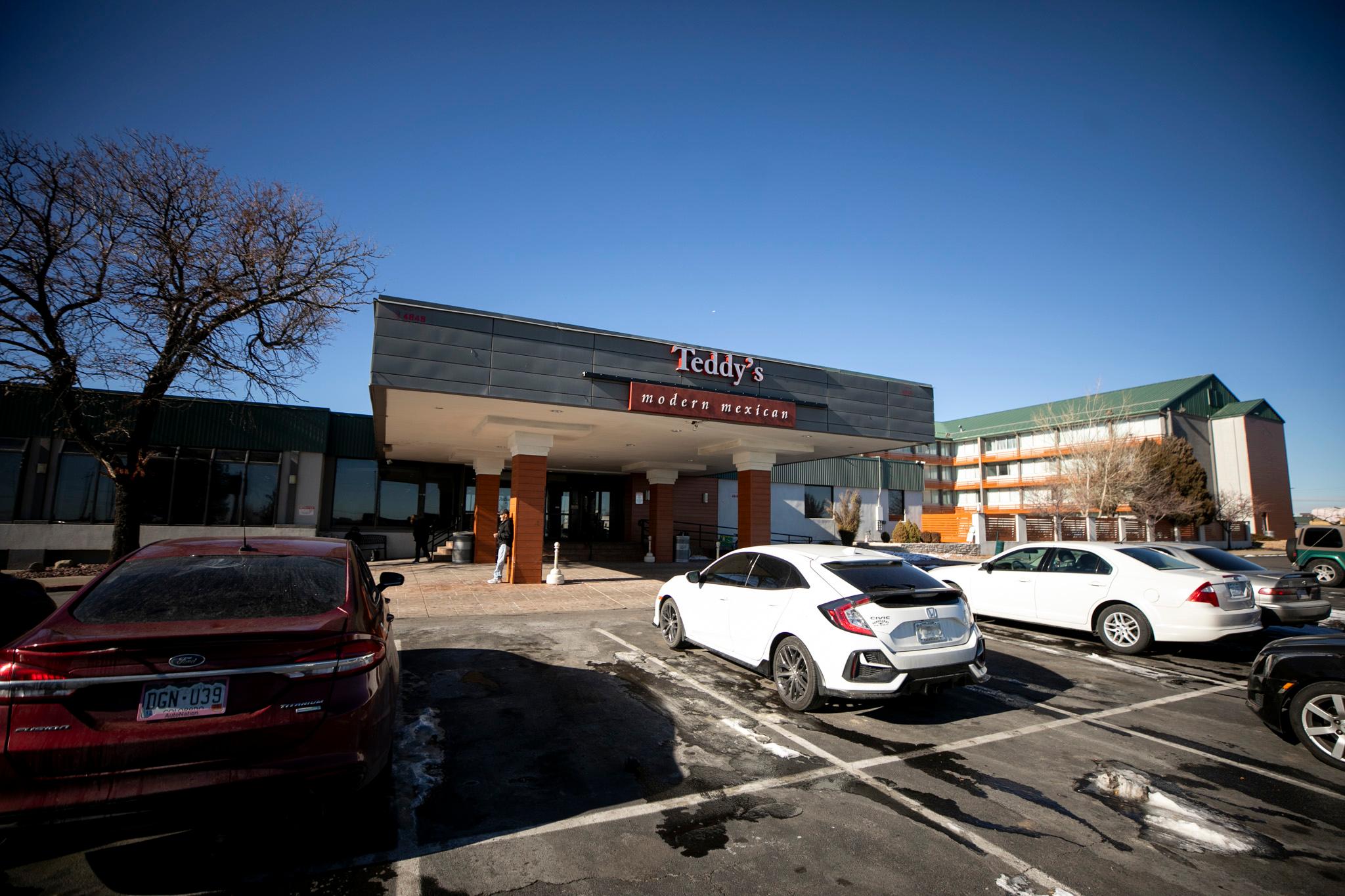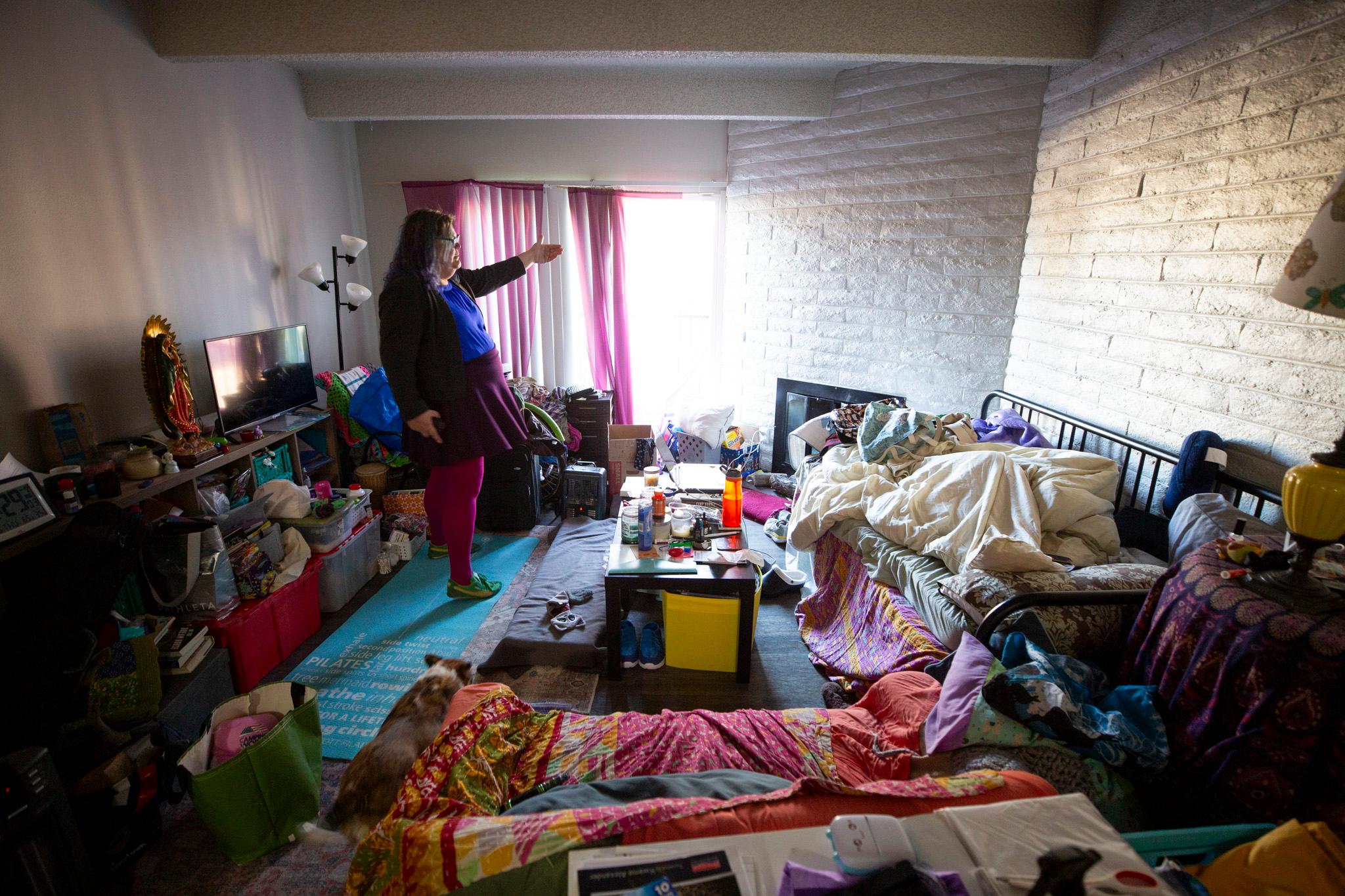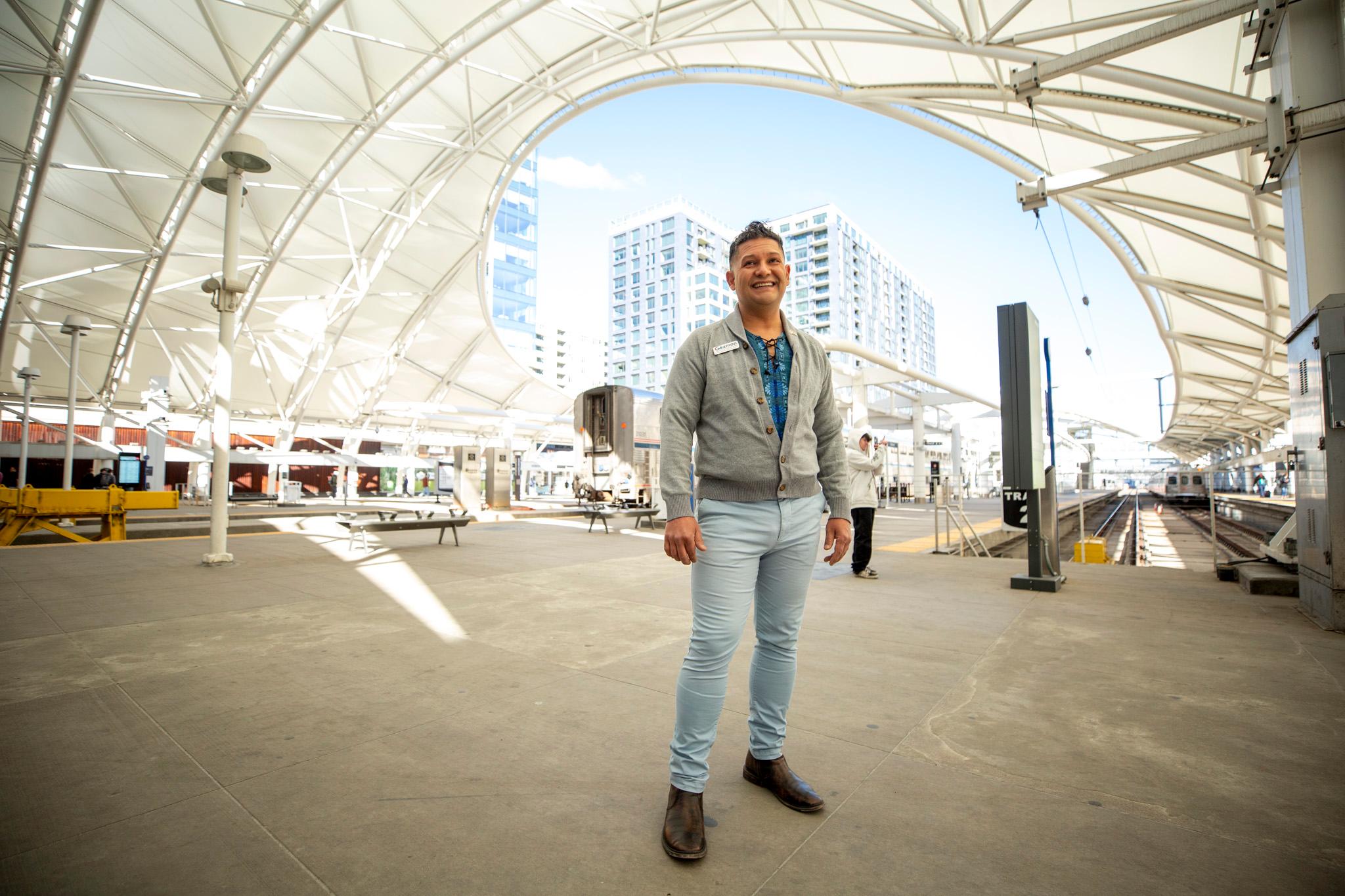The city of Denver will offer fewer hotel rooms for people experiencing homelessness, scaling back a significant part of Mayor Mike Johnston’s housing strategy.
But Johnston said it’s part of a change that will ultimately help more people get housing.
The city is ending its lease at the Radisson hotel in Globeville, where it’s offered 220 hotel rooms as temporary housing since 2023. It’s one of five hotels that Johnston has leased or purchased for his sheltering program.
Johnston told Denverite it’s time for a new phase of that program, known as All In Mile High. Now that the city is mostly clear of tents, he wants to shorten the time that people stay in “transitional units” at hotels and elsewhere so more people can pass through them.

The city was paying $10.4 million annually to rent the Radisson. The city now plans to spend that money on housing vouchers, which allow more people to rent rooms at apartments and move out of his shelters more quickly. The city will also hire more “navigators” to help people access resources for housing, employment and addiction.
Johnston claims the change will help the city quadruple the number of people that Denver serves. The “golden standard,” he said, is to bring 4,000 people inside from the streets each year.
"For us to get from 1,000 to 4,000 per year, we have to shift resources. And so one of the places we want to shift resources is away from hotels," Johnston said in a recent interview.
This week, the city told residents the Radisson will close at the end of March.
Some Radisson residents had caught wind of the news before the city made the announcement.
"A lot of us don't know where we're going," Gheome Madera said as he stood in front of the building last week. Some residents, like him, have stayed in these hotels for as long as a year.
Johnston's administration says people like Madera won't be abandoned.
The city will still have as many as 1,000 transitional units after the Radisson closes, Johnston said. But the hope is that the money Denver is saving on the Radisson will help move people out of hotels and into longer-term rentals instead.
Johnston aims to shorten stays in his All In sites to six months, or even less.
“If we get that to a three month length of stay, we could move 4,000 people off the street every year and 4,000 people into permanent housing every year," he told us. "That is how you get to the end of the cycle of homelessness.”

The city installed a housing navigation office in the Radisson a few weeks ago, with space for workers from the city and nonprofits to meet with clients before it closes. They’ve been going room to room, helping residents gather essential documents and then apply for apartments and financial help.
Soon, this “housing command center” will also include similar navigation for addiction, mental health services and employment. It will move to a new location when the Radisson closes.
Will there be anywhere to go?
Housing vouchers subsidize the cost of housing, paying rent to private landlords. But it can often be difficult for tenants to find landlords who will accept vouchers, even though state law requires many to do so.
The city has contracted with Housing Connector, a “tech-for-good nonprofit” that finds and manages relationships with landlords. One social worker we spoke to said the service has generated “hefty” lists of homes for his clients to browse through. Johnston said it’s revealing there are more places to live than expected.
“There is a lot of what we call naturally occurring affordable housing across the city, which are lower cost apartments, whether they're smaller, whether they're older, whatever that might be,” he said.

Currently, Denver has access to as many as 1,000 permanent housing vouchers each year, Johnston said, which are mostly made available through the federal government. The federal vouchers can subsidize housing costs for as long as people need the help, but people can wait for years to get one.
The city also offers its own “rapid recovery” housing vouchers, which similarly cover rent but only last for 12 months. Johnston said the city might shorten that term, too, to make more vouchers available.
“Let's start everyone on a six-month rapid rehousing cycle. Let's get you in and get you started, now have case management supporting, checking in. How's the progress towards work? How's the progress towards mental health? And we'll see a lot of folks that now by six months are great and ready to go,” Johnston said. “I think it's probably more of a starting with a baseline commitment and then seeing if there are folks that require added services, adding them as needed, but not presuming that everyone needs 12 months of housing support.”

The change has some observers concerned.
We met a woman named Dev in the Radisson lobby, who declined to share her last name and said she’d lived here for about a year. She said she and her husband lost their housing after he got sick. This hotel was a “blessing,” she said, and she knew people who’d moved out into their own places, into good situations.
She was holding out for a long-term federal voucher, she said, which was one reason she was still here. But when the housing navigation office opened in the hotel, she said she was quickly pointed toward the shorter-term local vouchers instead.
“I was under the impression it was supposed to be for life, but then the people told us that we’ve got to sign up for whatever [voucher] comes first … or else we get discharged,” she said.

Cathy Alderman, spokesperson for the Colorado Coalition for the Homeless, said people in Dev’s shoes have reason to be wary of taking shorter-term help. They may not be able to support themselves within six or 12 months, and they may not receive an extension of the voucher.
“For people that have been chronically homeless, chronically un- or under-employed or who might not have an income, rapid rehousing is unrealistic,” she said. “It’s hard to see someone living on the street with no income will be fully employed and with a savings account in six months.”
Mayor Johnston said the city will work with people who need longterm assistance, and try to place them in true affordable housing while they ride out their temporary vouchers.
But another risk, Alderman said, is that people are no longer considered “homeless” once they take a short-term voucher — blocking them from getting some benefits.
Terese Howard, a longtime activist on homelessness, shared Alderman’s concerns. While Alderman described the plan as well-meaning but unrealistic, Howard called it “total bullshit.”
“Permanent solutions aren't being prioritized, so you're just setting people up to fail,” she said, adding people can’t afford rent on “even a decent pay full-time job.”
“Maybe they do it for a year and then they're going to lose their job or do something and then things fall apart and you're back on the streets,” she said. “So no, it’s not a solution.”
Correction: This story originally misstated All In Mile High's name and has been updated.












